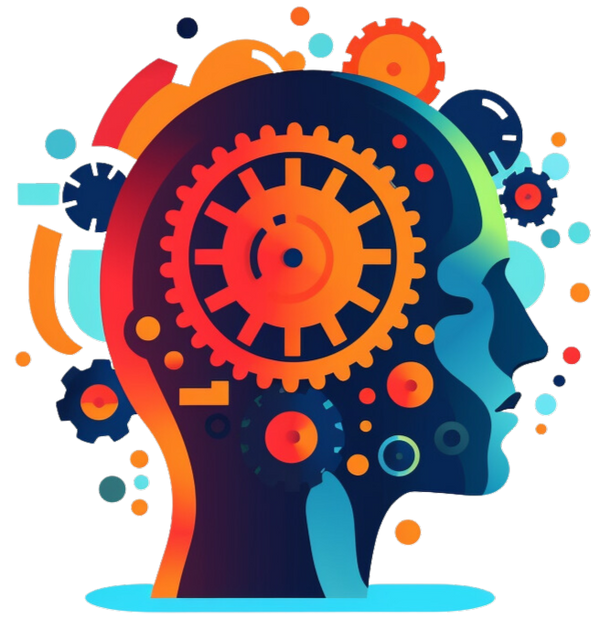
10 signs of ADHD in adulthood
Share
Forgetfulness, inattention, emotional ups and downs, inner restlessness: Do you know the feeling that everyday life feels like a task for superheroes?
Misplacing things, getting sidetracked during conversations, or simply not being able to concentrate: Everyone can relate to these problems. However, for people with ADHD, these difficulties are so intense and frequent that they often represent a daily burden. Perhaps you've been called a "fidgety Philip" or a "dreamer"? These traits could indicate ADHD.
Especially if you are still struggling with impulsivity, nervousness and concentration problems, an assessment may be useful.
The following ten symptoms often occur in people with ADHD with an intensity that makes everyday life difficult, creates professional hurdles, and can also make relationships challenging. It's important to note that many of these challenges can be overcome with the right strategies. However, depending on the severity, ADHD also usually requires medication.

1. Difficulty concentrating
People with ADHD often have difficulty controlling their attention and concentrating. This is demonstrated, for example, by:
- Easily distractible
- Daydreams
- "Switching off" during conversations
- Overlooking instructions and details
- Difficulty completing tasks on time
Interestingly, many adults with ADHD tend to exhibit what's known as hyperfocus—an intense concentration on topics that seem exciting or particularly relevant. This trait is often extremely useful in professional life. It leads to complex tasks being completed more quickly and efficiently. For example, someone with ADHD who immerses themselves in a project can often complete it in a significantly shorter period of time than others. This shows that ADHD brings not only challenges but also particular strengths.

2. Misplacing or losing items
Storing, organizing, or keeping track of things is problematic for many people with ADHD. Often, things are simply left lying around or forgotten. This includes:
- Losing everyday items such as car keys or wallet
- Leaving clothes on the bus or in a restaurant
- Losing track of where an item has been placed
- Storing items in the wrong places
Strategies such as fixed storage locations or visual reminders, such as sticky notes or smartphone reminders, can help to better manage such difficulties.

3. Frequent lateness
People with ADHD often have trouble planning and managing their time properly. This leads to them frequently arriving late for appointments or meetings. This can be caused by:
- Not being able to find the items you need
- Simply forgetting appointments and times
- Underestimate the time required
- Distractions during preparation
However, these difficulties can be minimized through better time planning and the use of reminders or visual timers .

4. Risky behavior
Adults with ADHD are more likely to exhibit impulsive or risky behaviors, such as:
- Arguments or disputes begin
- Excessive spending or risky driving
- Substance use or impulsive eating
These actions can be stressful for both the affected person and those around them. It's important to seek support early on to recognize such patterns and find alternatives.

5. Listening problems
Social interactions are often challenging for people with ADHD. Difficulties often arise with:
- Waiting for your turn to speak
- Follow the conversation
- Use the right nonverbal communication
Active listening is often the key here. These problems can be addressed with conscious communication and, if necessary, professional support.

6. Difficulties in prioritizing
Adults with ADHD often feel like they're trying to manage too many tasks at once, without knowing where to start. This can lead to overwhelm and ultimately "ADHD paralysis," in which no tasks are completed at all.
- Feeling of always having too much to do (which can be overwhelming and ultimately blocking)
- All tasks appear equally important
- Difficulty thinking ahead – deadlines are underestimated
- Looking for something new instead of the familiar tasks that may be more important and relevant at the moment
Setting small, concrete steps and clearly prioritizing your tasks helps you manage them better and reduce stress. For example, a complex task like 'tidying up the apartment' can be broken down into smaller steps: first tidying up a corner of the living room, then washing up in the kitchen, and finally vacuuming another room. Such subdivisions make the whole thing less overwhelming and more manageable.

7. Relationship problems
ADHD can also affect social life. Those affected often have difficulty listening, remembering important appointments, or regulating emotions appropriately. This can cause tension and misunderstandings in relationships.
- Difficulty actively following a conversation
- Forgetting important events and dates (like birthdays)
- Blurting out hurtful statements
- Failure to comply with obligations
- Difficulty regulating emotions
- Difficulty reading other people's emotions (because one is overwhelmed by one's own emotions > stress mode, possibly "freeze" reaction)
Nevertheless, it is possible to have successful relationships even with ADHD, especially if both partners develop an understanding of each other's challenges and seek professional support.

8. Nervous energy
Restlessness, fidgeting, and constant mental leaps are commonplace in many adults with ADHD. This is often misunderstood, but can also be beneficial in the right context.
- leaps of thought
- Constant fidgeting
- Tics and impulsive behaviors
- Frequent overthinking and catastrophizing
- Difficulty sitting still
This restlessness offers advantages in jobs and tasks where solutions must be found quickly – or where creative thinking and new ideas are required. Improvising and "putting out fires" are great strengths of people with ADHD.

9. Memory problems
Working memory problems are common for people with ADHD. This can manifest itself in forgetting tasks, instructions, or important appointments.
- Forgetting things on shopping lists
- Leave important items at home
- Losing track of possessions
- Difficulty following instructions to complete tasks
- Having to reread sections of text because information is not retained
At the same time, the ADHD brain is often surprisingly creative and associative , which repeatedly leads to innovative solutions to problems.

10. Mild irritability
People with ADHD often experience mood swings, outbursts of anger, or prolonged periods of irritability. This can strain relationships and lead to misunderstandings at work.
- Impatience under stress
- Explosive outbursts of anger
- Long-lasting irritability
- Tantrums over everyday obstacles
- Sudden sadness/depression
- Ignorance of the other party's feelings
Here, too, a combination of professional therapy, medication, and self-care can help improve emotional regulation.

ADHD as a challenge and opportunity
ADHD significantly impacts everyday life and presents those affected with many challenges. However, it also brings with it unique strengths , such as high levels of creativity, hyperfocus, and unconventional problem-solving. With the right support, appropriate strategies, and an understanding of one's own strengths, a fulfilling and successful life is possible.
Professional counseling and engaging with others affected by ADHD are valuable steps toward better understanding yourself and developing your character. Use the strategies mentioned above and seek external support to positively integrate the unique strengths of ADHD into your life.
